Uma das
verdades da vida é que todas as pessoas que conhecemos estão vivendo batalhas
internas que mal podemos imaginar. Olhos plácidos podem esconder o tormento da
alma e pessoas com mentes agitadas podem esconder a ansiedade com gestos
calmos. De vez em quando, esta verdade é explorada no cinema. Um dos filmes que
tratam disso é “Ver-te-ei Outra Vez”, um filme de Natal que não se parece em
nada com outros filmes de Nata, e um filme feito durante a guerra com um
soldado protagonista, mas não da maneira que era esperada.
One of the
truths in life is that all the people we meet are going through inner battles
we can't see or guess. Placid eyes can hide turmoil and people with agitated
minds can disguise the anxiety with calm manners. Every now and then, this
truth is explored by films. One of those films was “I’ll Be Seeing You”, a Christmas
movie that looks nothing like a Christmas movie, and a film made during the war
and featuring a soldier, but not the way we expected him to be.
Duas
pessoas se conhecem em um trem. Elas são a “vendedora” Mary Marshall (Ginger
Rogers) e o soldado Zachary Morgan (Joseph Cotten). Quando eles ficam a sós no
trem barulhento, começam a conversar e se conhecem melhor – partilhando apenas
informações básicas, claro. Mary diz que vai visitar seu tio em uma cidade
chamada Pinehill. Zack então decide também descer em Pinehill e ir atrás de
Mary.
Two people
meet on the train. They are “saleslady” Mary Marshall (Ginger Rogers) and
soldier Zachary Morgan (Joseph Cotten). When they have some time alone in the
noisy train, they chat and get to know each other – only the basic information,
of course. Mary says she will visit her uncle in a town named Pinehill. Zack
then decides to also stay in Pinehill and go after Mary.
Mas
ambos escondem algo. Mary esteve na cadeia e foi apenas liberada para passar o
Natal com sua família devido ao seu bom comportamento. Zack esteve no hospital
e acabou de receber dispensa para passar o Natal longe da internação e tentar viver
com seu trauma sob controle.
But they
both hide something. Mary was in jail, and is now on probation spending
Christmas vacation with her family due to good behavior. Zack was in the
hospital and has just received a brief leave to experience Christmas outside
and try to live with his PTSD under control.
Mary
fica na casa de seus tios. A tia Sarah (Spring Byington) é cheia de boas
intenções, assim como o tio Henry (Tom Tully). Eles têm uma filha, a curiosa
adolescente Barbara (Shirley Temple). Mas estas boas intenções escondem o
preconceito deles. Por exemplo, Barbara arruma coisas separadas só para Mary –
como sabonetes e toalhas – como se ela fosse contaminar a família se eles
usassem os mesmos produtos. Além disso, ria Sarah pensa que Mary não deveria
contar para Zack que ela esteve na cadeia, porque isso o assustaria.
Mary stays in her aunt’s and uncle’s house. Aunt
Sarah (Spring Byington) is full of good intentions, as well as uncle Henry (Tom
Tully). They have a daughter, curious teenager Barbara (Shirley Temple). But
these good intentions hide prejudice. For instance, Barbara has separate things
just for Mary - like soaps and towels - as if she could contaminate the family
if they shared those products. Besides that, aunt Sarah thinks Mary shouldn’t
tell Zack she has been in jail, because it would scare him.
Zack conta para Mary sobre seu trauma
de guerra, mas ela não pode contar para ele sobre a prisão – mesmo que ela
tenha cometido o crime para se defender. É uma mulher se autossacrificando e
sacrificando a verdade para um homem emocionalmente instável. A tia Sarah diz
que talvez Zack não seja forte o suficiente para lidar com a verdade. É a
lógica da guerra: as mulheres têm de fazer sacrifícios para que os homens
possam ir para a guerra e depois se recuperar dela. É como diz a música “No Love, No Nothin’” do filme “Entre a Loura e a Morena” (1943): “no love, no
nothing, until my baby comes home”.
Zack tells Mary about his PTSD, but she can’t tell
him about being in prison - even if the crime she committed as self-defense.
It’s a woman sacrificing herself and the truth for a man that is emotionally unstable.
Aunt Sarah says Zack may not be strong enough to handle the truth. It’s the war
logic: women must make sacrifices so men can serve the military and later
recover from their war traumas. Like what is told by the song “No Love, No Nothin’” from the movie “The Gang’s All Here” (1943): “no love, no nothing,
until my baby comes home”.
“Ver-te-ei Outra Vez” pode ser
descrito como um filme sobre gatilhos. Se você tem algum trauma, qualquer tipo
de trauma, você sabe que um gatilho pode trazer todas as memórias de volta – e Hollywood
estava começando a perceber que isso era verdade também para os soldados
traumatizados. O gatilho de Mary é ouvir alguém falar sobre celas ou prisões,
ainda que metaforicamente. O grande gatilho de Zack é o ataque de um cachorro,
depois do qual ele tem um ataque de ansiedade e pânico fechado no quarto, algo
muito poderoso e também uma sequência que mostra o talento de Joseph Cotten –
não há dúvidas de que Cotten tem a melhor atuação do filme.
“I’ll Be Seeing You” can be described as a movie
about triggers. If you have some trauma, any kind of trauma, you know how a
trigger can bring all the memories back – and Hollywood was starting to realize
this was true about shell-shocked soldiers, too. Mary is triggered whenever
someone mentions prisons or cells, even metaphorically. Zack is especially
triggered after a dog attacks him, and in his room he has a complete panic
attack, something extremely powerful and also a sequence that showcases Joseph
Cotten’s talent – there is no doubt Cotton delivers the best performance in the
movie.
Eu fiquei esperando que muitas coisas
acontecessem. Primeiro eu pensei que Shirley Temple, Joseph Cotten e Ginger
Rogers formariam um triângulo amoroso. Mas É ÓBVIO que Hollywood não faria isso
com a pequena Shirley, a menina de ouro. Hollywood não era capaz de colocá-la
para disputar Cotten com Ginger Rogers, por isso sua personagem Barbara é
importante, mas não atrapalha ninguém – pelo menos não de propósito.
I was expecting many things to happen. At first I
thought Shirley Temple, Joseph Cotten and Ginger Rogers would be in a love
triangle. But OF COURSE Hollywood wouldn’t do it to little Shirley, its
youngest moneymaker. Hollywood just couldn’t make her dispute Cotten with
Ginger Rogers, so her character Barbara is important, but not a troublemaker –
at least not intentionally.
Nós temos muitos filmes nos anos 40
sobre pessoas que encontram o verdadeiro amor durante as férias de Natal. Um
dos mais emblemáticos – e também aquele que mais tem a ver com “Ver-te-ei Outra
Vez” – é “Lembra-se Daquela Noite?” (1940). Nele, Barbara Stanwyck é uma mulher
que deve ser presa por roubo, mas como todas as pessoas já haviam saído de
férias, ela precisa ficar com o advogado de acusação, interpretado por Fred
MacMurray. Eles acabam passando o Natal juntos na casa da família dele. “Amor
de Natal” nos anos 40 era o equivalente ao “amor de verão” sobre o qual
Travolta e Olivia Newton-John cantaram em “Grease”.
We have many movies about people finding true love
during Christmastime made during the 1940s. One of the most emblematic ones –
and the one that share themes with “I’ll Be Seeing You” – is “Remember the
Night” (1940). In “Remember the Night”, Barbara Stanwyck plays a woman who must
go to jail after a robbery, but since everybody had already left for Christmas,
she has to stay with her prosecutor, played by Fred MacMurray. They end up
spending Christmas at his family’s home. “Christmas love” in the 1940s was the
equivalent to the “Summer love” Travolta and Newton-John sang in “Grease”.
“Ver-te-ei Outra Vez” é um pequeno
filme agridoce, assim como outros que David O. Selznick produziu. Sua icônica
produtora, simbolizada por uma placa em frente a uma casa branca, nos legou
muitos pequenos tesouros feitos nas décadas de 1930 e 1940. “Ver-te-ei Outra
Vez” é mais um destes pequenos tesouros.
“I’ll Be Seeing You” is a bittersweet little film,
like some David O. Selznick produced. His iconic production company, symbolized
by a plaque in front of a white house, gave us many great little gems during
the 1930s and 1940s. “I’ll Be Seeing You” is another of those great little
gems.
This is my contribution to
the Joseph Cotten blogathon, hosted by Crystal from In the Good Old Days of Classic Hollywood and Maddy at Maddy Loves her Classic Movies.
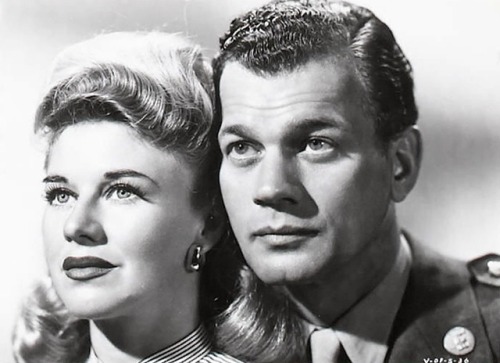
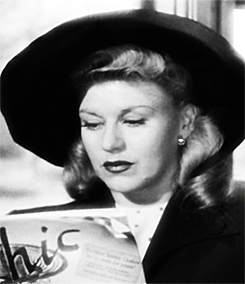
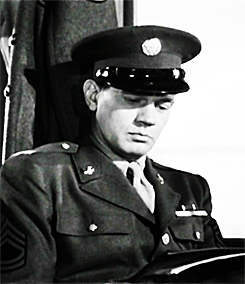
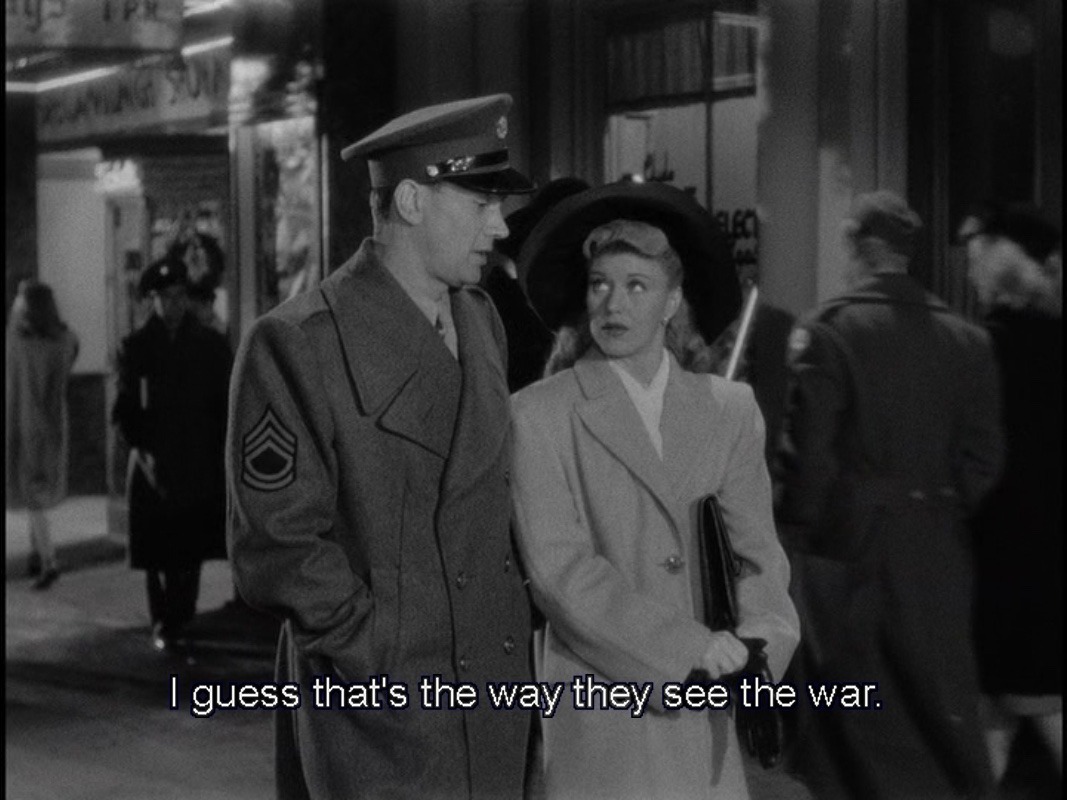
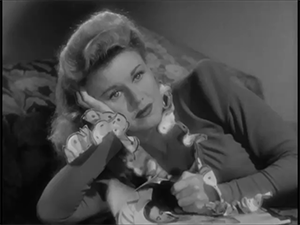
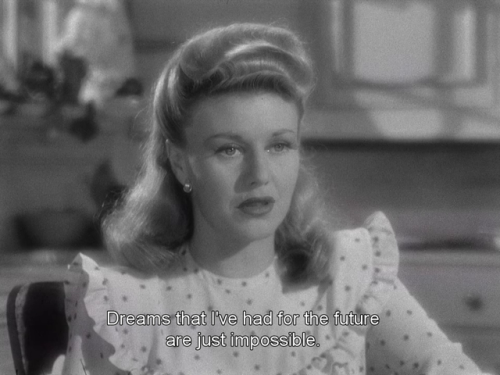
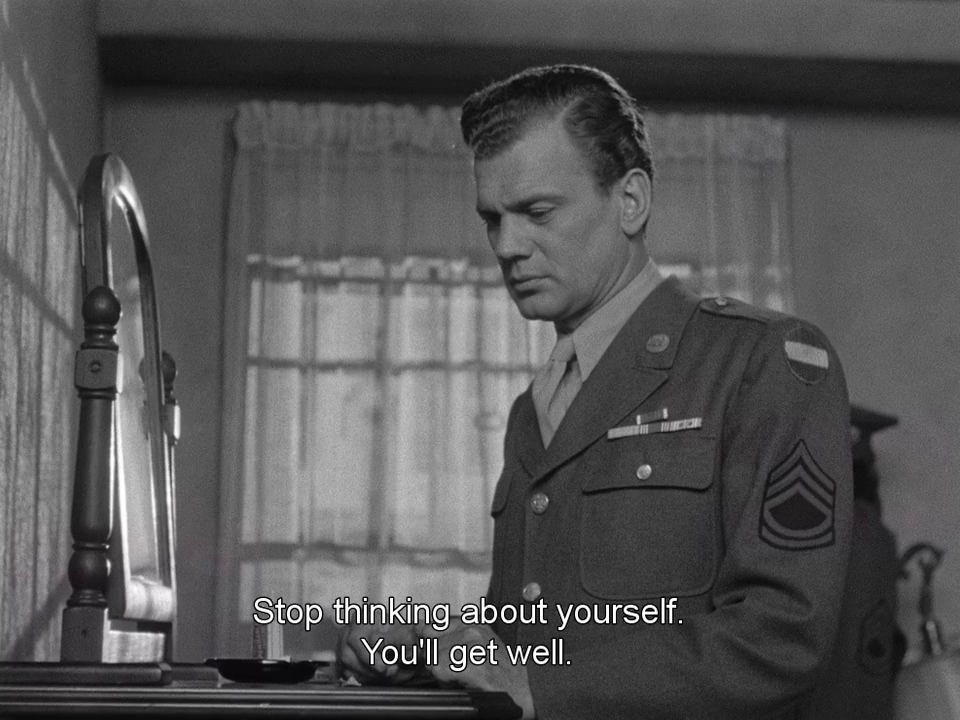
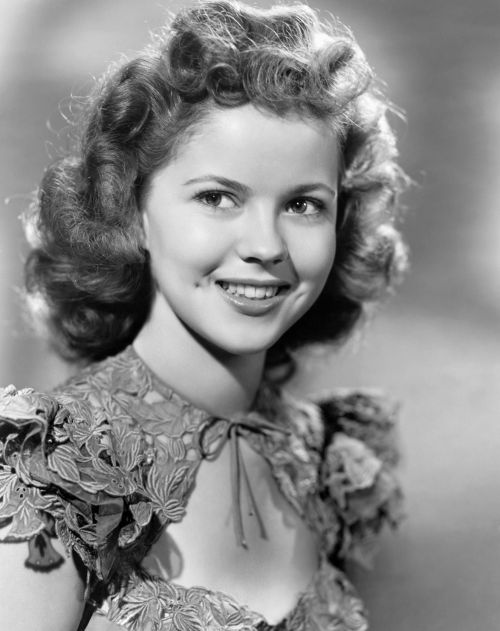

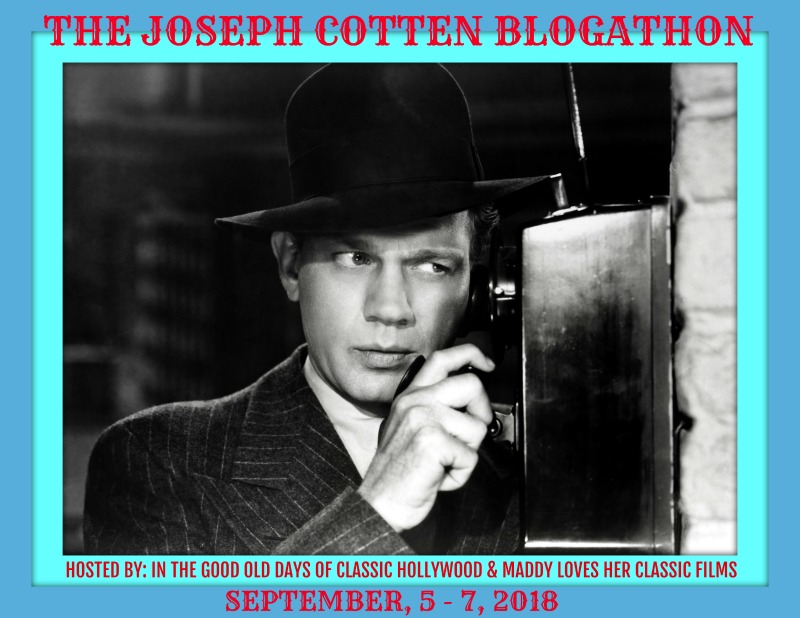
3 comments:
I'll Be Seeing You is a beautiful movie and you wrote a beautiful critique. Although I haven't seen it in many years the memories of the emotions evoked are amazingly strong.
Wonderful review! I've only seen this film once, but I still get goosebumps just thinking about it, especially Cotten's panic attack scene. A very powerful, quiet film that deserves much more recognition.
Esse filme passou na sessão sala vip, da extinta tv Manchete canal 9 de sp, na madrugada de 15/10/1995 .Há imagens no YouTube.👍filme legal
Post a Comment